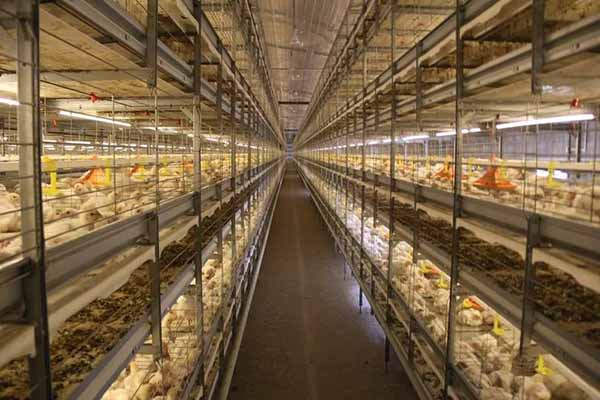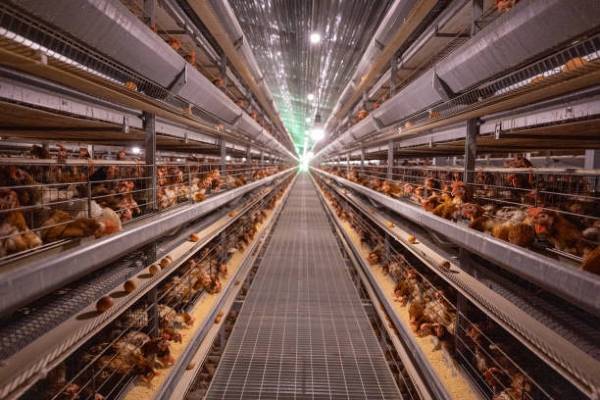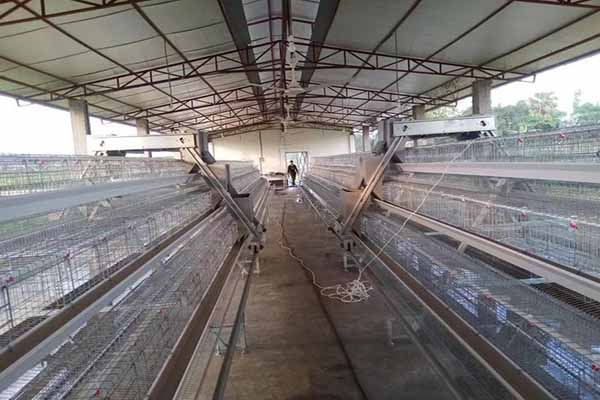Understanding Chicken Cage Systems Price: A Comprehensive Guide
Time : 2025-07-02
In the poultry industry, the choice of chicken cage systems is critical for the overall health, productivity, and economic viability of the operation. The price of these systems, however, can vary significantly based on several factors. This article aims to provide a detailed understanding of the price aspects of chicken cage systems, helping you make an informed decision for your farm.
The Basics of Chicken Cage Systems
Chicken cage systems are designed to provide a controlled environment for the rearing of chickens, whether for egg production or meat. These systems are typically made of metal frames and wire mesh, ensuring durability and easy cleaning. The design of the cage can vary from simple single-tier systems to complex multi-tier systems that optimize space and improve efficiency.

Components of Chicken Cage Systems
- Frame: The structural support for the cage, usually made of metal.
- Mesh: The material that forms the floor and sides of the cage, made of high-quality steel wire.
- Feeder: A device for delivering feed to the chickens.
- Waterer: A device for providing water to the chickens.
- Ventilation: Systems to ensure proper air circulation and temperature control.
- Manure Removal: Mechanisms for collecting and disposing of chicken droppings.
Factors Affecting Chicken Cage Systems Price
Quality of Materials
The quality of the materials used in the construction of chicken cage systems can significantly impact the price. Higher-quality materials such as stainless steel or galvanized steel are more durable and corrosion-resistant, leading to a higher initial cost but potentially lower long-term maintenance costs.
Design Complexity
More complex designs, such as multi-tiered systems or systems with advanced ventilation and manure removal features, will generally be more expensive. These systems can offer better productivity and health benefits for the chickens but at a higher cost.

Size and Capacity
The size and capacity of the chicken cage systems also play a role in the price. Larger  systems can accommodate more chickens, which can be more cost-effective per bird, but the initial investment is also higher.
systems can accommodate more chickens, which can be more cost-effective per bird, but the initial investment is also higher.
Brand and Manufacturer
The reputation and quality of the brand can affect the price. Renowned manufacturers often charge a premium for their products due to their durability, reliability, and customer service.
Customization
Customized chicken cage systems, tailored to specific farm needs, can also be more expensive. This includes modifications in size, design, or additional features that are not standard on most systems.
Comparing Prices
When comparing prices for chicken cage systems, it’s essential to consider the following:
- Complete System Cost: Ensure you are comparing the total cost of the system, including all necessary components.
- Installation: Some suppliers may offer installation services, which can affect the overall cost.
- Warranty: A longer warranty period can provide peace of mind and save money on potential repairs or replacements.
- Long-term Savings: Consider the long-term savings that may come from a more expensive system due to higher productivity or lower maintenance costs.
Conclusion
Selecting the right chicken cage system is a significant investment that requires careful consideration of both the immediate and long-term costs. By understanding the factors that affect the price and making a well-informed decision, you can ensure that your chicken farm operates efficiently and profitably.











